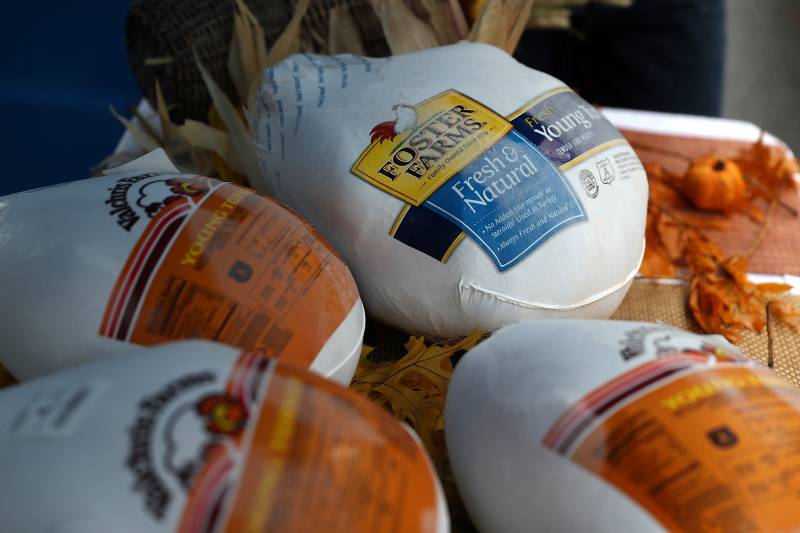This report contains a correction.
Employees at a Foster Farms processing plant in south Fresno were notified this week that one of their coworkers tested positive for COVID-19.
In a letter obtained by KQED, Operations Manager Scott Shows said the employee “has not worked since April 11th, as he was self-quarantined as a precautionary measure.”
It’s the first reported case among Foster Farms’ processing plants in California.
Ira Brill, vice president of communications for Foster Farms, said the employee worked on the processing line. Workers on the processing line might do a number of tasks, including eviscerating, cutting up and cleaning chickens, supervising or other jobs.
The company is now working to find out who else at the plant may have been exposed. Brill said other employees are in quarantine, but would not say how many.
“We run wellness checks at these plants, including the (plant in Fresno), where we’re monitoring every employee’s temperature. As they enter the plant, we are asking — have they had shortness of breath, coughing,” Brill said.
One plant employee, who asked not to be named because he feared he would lose his job, told KQED he was notified that a worker had tested positive while leaving work late Wednesday afternoon.
“Of course there is fear and worry, as we don’t want anyone to get sick,” the employee said. “Sometimes we don’t want to go to work because you don’t know what the person next to you might have, but we’re all dependent on a paycheck and have few options.”
A statement released by Foster Farms on Wednesday said that the company has implemented measures to protect employees per guidance from the Centers for Disease Control and Prevention, including: expanded sanitation, wellness checks, encouraging employees to wear face coverings, installing dividers to maintain social distance in workspaces and break areas, among other steps.
Brill said the plant would stay open and would not curtail operations, as long as it does not pose a risk to the community where the company operates.
“One positive (diagnosis) does not constitute a risk,” Brill said. “It’s a positive that we hoped would not happen. We are doing everything possible, and have taken many of these steps before other companies have, to limit the impact on the workforce.”
Employees at other Foster Farms meat processing plants have tested positive for COVID-19, including facilities in Kelso, Washington, and Farmerville, Louisiana. Those plants also remain open.

